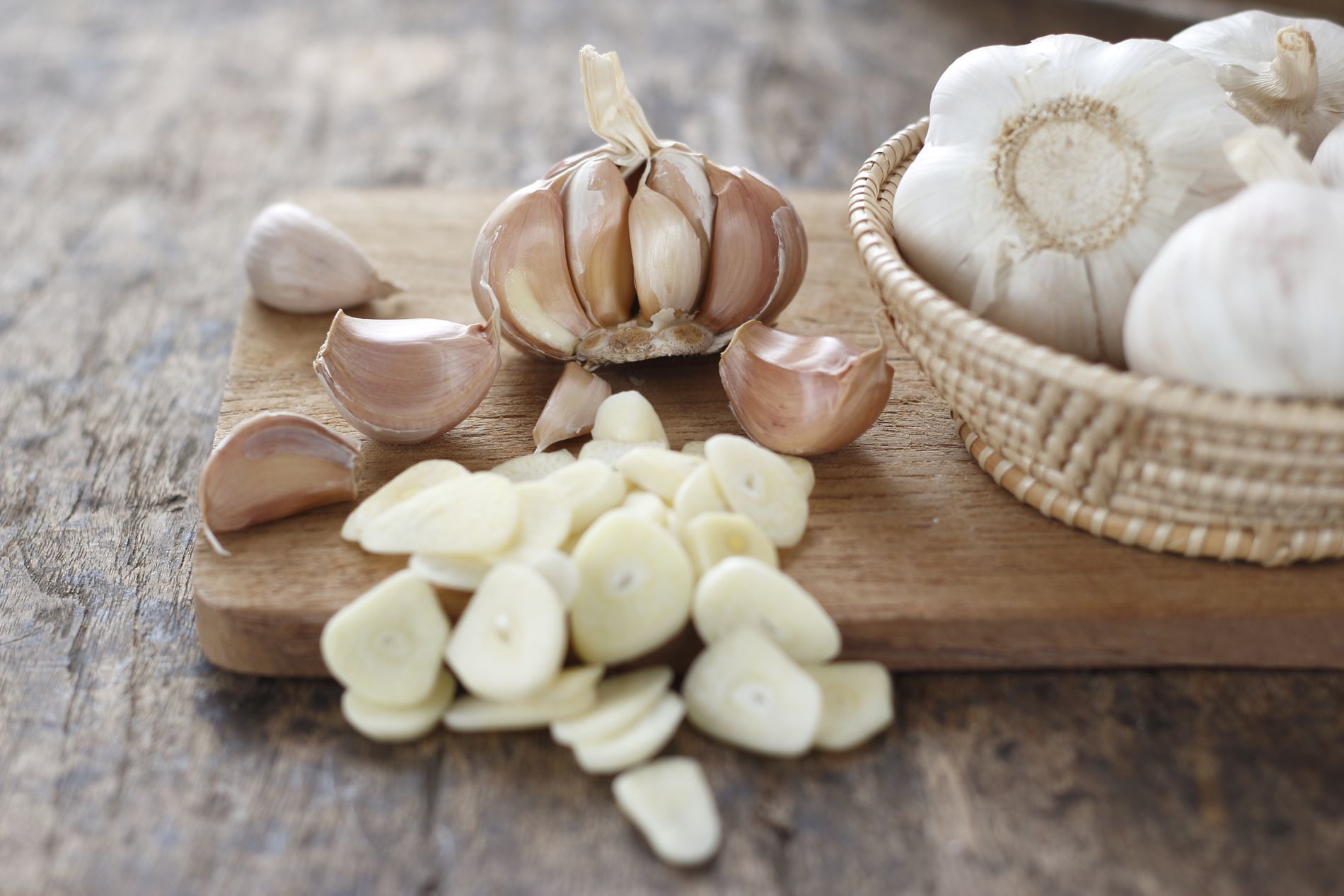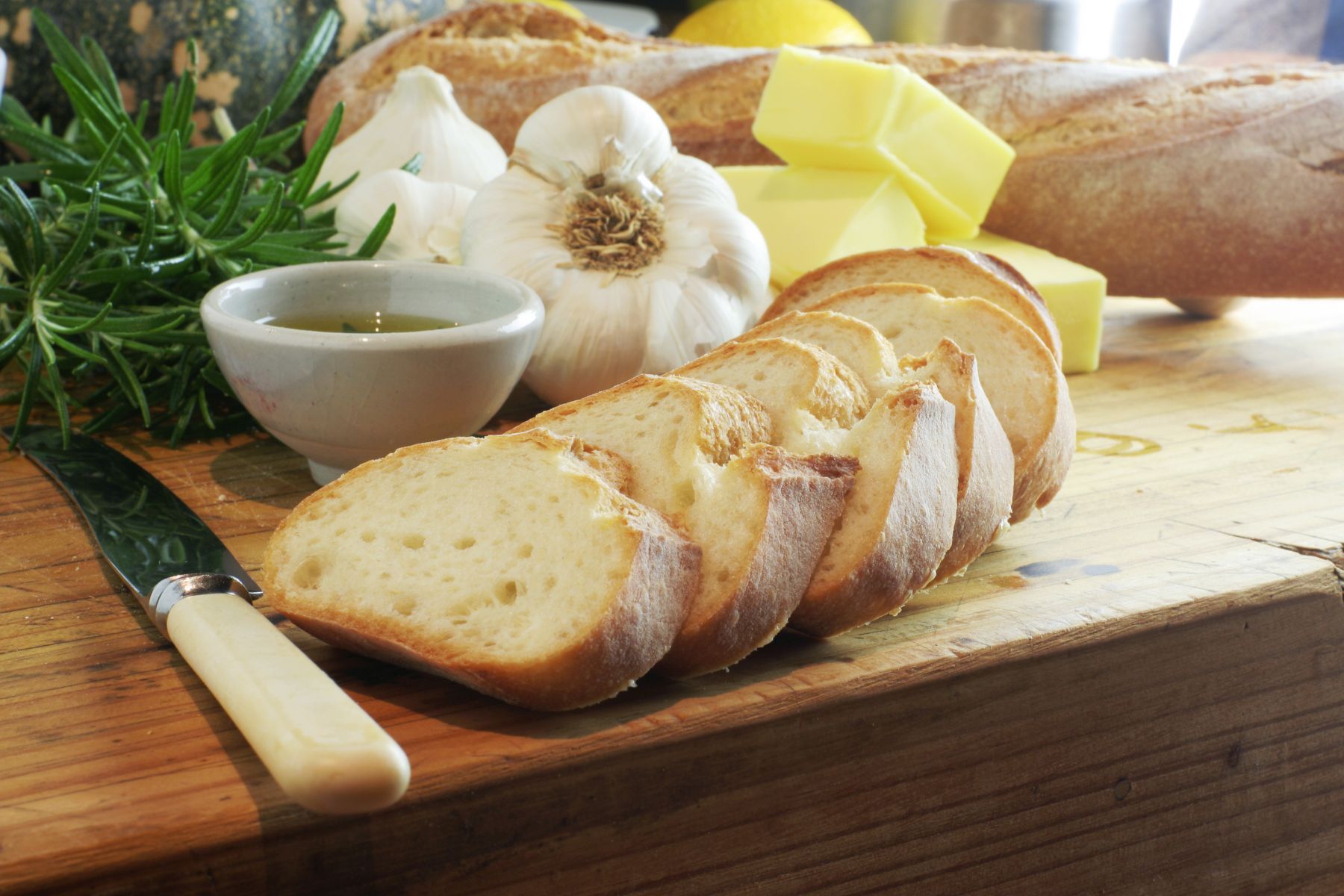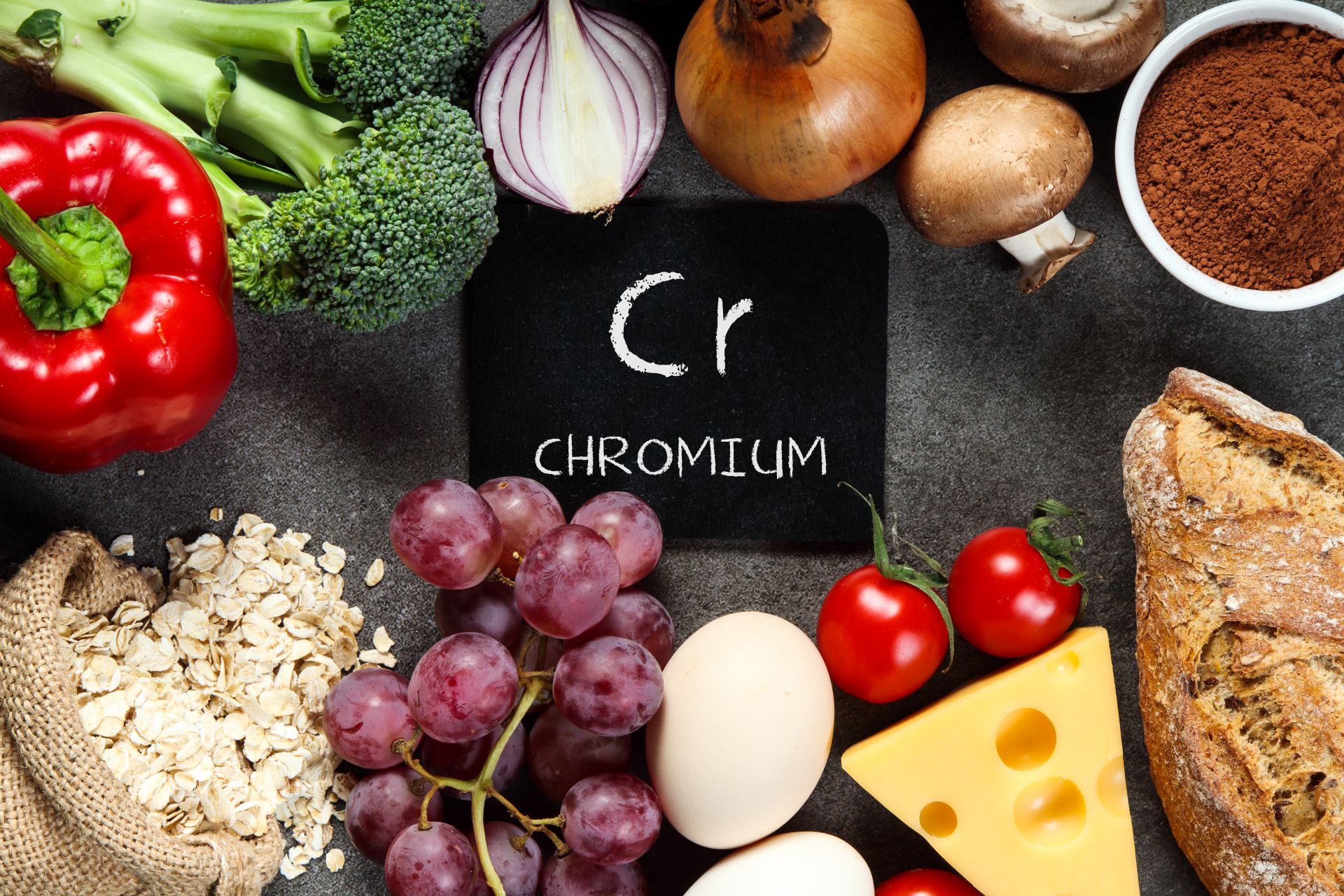Garlic - key properties

Garlic is a low-calorie vegetable with a distinctive taste and smell, which contains a number of substances with a wide spectrum of biological and pharmacological activity. Regular inclusion of garlic in the diet is associated with many human health benefits. Garlic is widely recognized as a natural antibiotic that can help prevent and support the treatment of the common cold and many other health ailments.
- Garlic - nutritional values
- Garlic - cardioprotective properties
- Garlic - anti-diabetic properties
- Garlic - anticancer properties
- Garlic - antimicrobial properties
- Garlic - contraindications
Garlic - nutritional values
The health-promoting properties of garlic are mainly due to the presence of organic sulfides, and already especially allicin. Allicin is a bioactive compound that is formed from allicin as a result of damage to the garlic bulb, such as chopping or crushing a garlic clove. It exhibits antibacterial, antifungal, antiprotozoal, antioxidant and anticoagulant properties. In addition to the aforementioned allicin, garlic contains saponins, carotenoids (e.g. β-carotene, lutein, zeaxanthin), flavonoids (e.g. rutin, quercetin, myricetin, apigenin), phenolic acids and free amino acids (e.g. arginine and methionine). Garlic is also a source of vitamins (vitamin C and B vitamins) and minerals (especially potassium, calcium, phosphorus, iron, zinc, manganese, copper and selenium). One medium clove of garlic (5 g) provides a mere 7.5 kcal.
Garlic - cardioprotective properties
Garlic has well-documented antioxidant, anti-inflammatory, anticoagulant, antihypertensive, anti-atherosclerotic, fibrinolytic (i.e., enhancing the process of clot breakdown) and vasculoprotective (i.e., sealing the endothelium of blood vessels) properties, so it can prevent the development of cardiovascular disease. People who regularly consume garlic have been shown to have lower levels of total cholesterol and low-density lipoprotein LDL (so-called "bad cholesterol") in their blood. Garlic supplements taken in a daily dose of 600 to 1,200 mg, can also lower triglycerides and slightly increase levels of high-density lipoprotein HDL (so-called good cholesterol) in the blood. Garlic inhibits the absorption of cholesterol from the gastrointestinal tract and reduces the body's internal production of cholesterol, resulting in a decrease in its blood levels. Current studies also show that garlic lowers systolic and diastolic blood pressure, and even more so in patients with hypertension when the garlic preparation is used at a dose of 600 mg per day for a period of 3 months.
Garlic - anti-diabetic properties
Garlic is a recommended component of the diet of patients who struggle with diabetes and insulin resistance, due to its hypoglycemic (i.e., blood glucose-lowering) and anti-diabetic properties. Regular inclusion of garlic in the diet can contribute to a marked reduction in blood glucose levels (as low as 10.90 to 21.02 mg/dl) and a decrease in glycated hemoglobin (HbA1c), which is a good indicator for assessing long-term glycemic control. Garlic shows hypoglycemic properties when used at a dose of 600 to 1,200 mg per day over a long period of time, even 1-2 years. In addition, studies have shown that garlic consumption does not cause weight loss, although its supplementation may result in a reduction in waist circumference.
Garlic - anticancer properties
The US National Cancer Institute has identified garlic as a plant with potent anti-cancer properties. It is suggested that garlic's anti-cancer properties are mainly due to its allicin content. Studies have shown that consumption of fresh or cooked garlic can reduce the risk of stomach cancer by 47-51% and colon cancer by 20-31%.
Garlic - antimicrobial properties
Garlic has strong antimicrobial properties, or more precisely, it has a bactericidal effect on many species of Gram-positive and Gram-negative bacteria. It has been documented that garlic can inhibit the growth of such pathogenic bacteria as: Escherichia coli, Staphylococcus aureus, Pseudomonas aeruginosa, Proteus mirabilis, Klebsiella pneumoniae. It is also indicated that garlic can potentiate the antibacterial properties of antibiotics against resistant strains of bacteria. Garlic also has immune-stimulating properties, so its regular consumption can prevent the onset of colds caused by viruses. It has been shown that people taking garlic were less likely to suffer from colds and at the same time recover more quickly from viral infections.
How to eat garlic?
The greatest therapeutic effect is achieved by crushing or crushing a fresh garlic clove, without heat treatment. Garlic when exposed to high heat (such as frying) loses some of its bioactive compounds and reduces its antimicrobial properties. Current research shows that the daily dose of garlic powder at which the desired health-promoting properties can be expected to occur ranges from 600 to 1,200 mg per day. It can be assumed, in a nutshell, that 1000 mg (1 g) of garlic powder is equivalent to half of a fresh garlic clove (2500 mg - 2.5 g).

Garlic - contraindications
Garlic is a vegetable that is safe for human health, although it can cause some side effects. Among the most common side effects of consuming garlic are unpleasant mouth odor, gastrointestinal complaints (including: heartburn, belching, flatulence, abdominal pain), bleeding and allergic reactions. Taking garlic supplements can also exacerbate the effects of anticoagulant, antiplatelet and antidiabetic drugs.
Sources:
- Shabani E, Sayemiri K, Mohammadpour M.: The effect of garlic on lipid profile and glucose parameters in diabetic patients: A systematic review and meta-analysis. Prim Care Diabetes. 2019 Feb;13(1):28-42.
- Ried K.: Garlic lowers blood pressure in hypertensive subjects, improves arterial stiffness and gut microbiota: A review and meta-analysis. Exp Ther Med. 2020 Feb;19(2):1472-1478.
- Ried K, Toben C, Fakler P.: Effect of garlic on serum lipids: an updated meta-analysis. Nutr Rev. 2013 May;71(5):282-99.
- Ried K.: Garlic Lowers Blood Pressure in Hypertensive Individuals, Regulates Serum Cholesterol, and Stimulates Immunity: An Updated Meta-analysis and Review. J Nutr. 2016 Feb;146(2):389S-396S.
- Kodali RT, Eslick GD: Meta-analysis: Does garlic intake reduce risk of gastric cancer? Nutr Cancer. 2015;67(1):1-11.
- Wan Q., Li N., Du L., et al.: Allium vegetable consumption and health: An umbrella review of meta-analyses of multiple health outcomes. Food Sci Nutr. 2019 Jul 10;7(8):2451-2470.
 ⮜ Previous article
⮜ Previous article
Stretching - why is it worth it?
 Next article ⮞
Next article ⮞